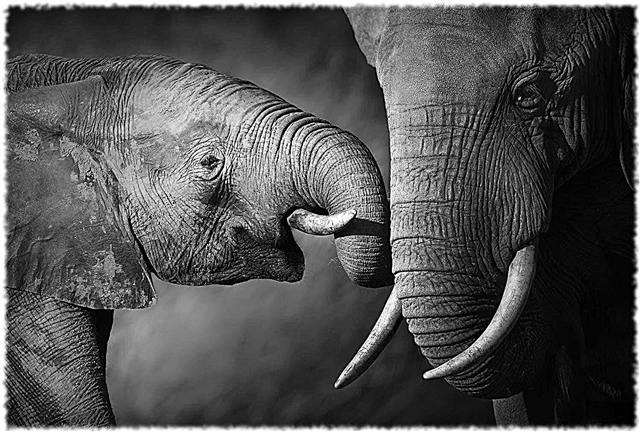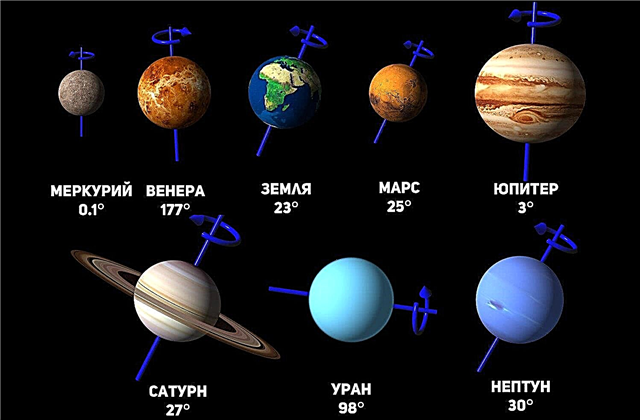
The word week, denoting the generally accepted seven-day cycle, came from the verb do, combined with the particle not. In Russian, this day is Sunday.
The emergence of the concept of "week"
In the Pre-Slavic language, the word nedela existed, which meant a day off. According to some researchers, it was borrowed from the ancient Greek language, according to other sources - from Latin.
In ancient Russia, the repeating seven-day period was called the week, and it ended with the day in which it was supposed to rest - a week. Therefore, the next day was called Monday. In pre-revolutionary Russia, as in many other states, the beginning of the week was on Sunday. Monday acquired the official status of the first day in the days of the USSR.
Interesting fact: in other Slavic languages, the concept of a week is known in its original meaning of the seventh day off. Single-root words denoting a day off are contained, in particular, in modern Ukrainian and Belarusian languages.
How did it happen that in Russian the word denoting a day of rest was called a period of time? Obviously, it was customary to count the time from the weekend, called a week, to the next week - "from week to week." So, in ancient times, the name of one day could go over the entire time interval of 7 days. Mentions of the week as a designation of a period of time are already found in 1057 in the text of the Ostromirov Gospel.
Interesting fact: in the Church Slavonic language, seven-day cycles, as in ancient times, are called weeks, and Sunday is designated by the word week. At the same time, Sunday is considered the beginning of the week. Such terminology is used in worship schedules and church calendars. Accordingly, the adjective “weekly” in this context will mean “Sunday”.
Why exactly 7 days in a week
The division of time into seven-day periods occurred a very long time ago. Mention of a seven-day week is found in historical documents relating to Ancient Babylon (approximately 2 thousand years BC). Such a calculus was used in the Ancient East.
Historical data connects the 7-day cycles with the phases of the moon, according to which sacrifices were performed. In the Julian calendar, such a calculation was officially fixed in the period of the reforms of Julius Caesar in the first century. Subsequently, during periods of colonization and worldwide integration, the division into seven-day periods spread throughout the world.
According to the astronomical version, the origin of the 7-day week may be associated with a change in the phases of the moon. The lunar cycle lasts 28 days. This period includes four phases, each lasting 7 days. Observations of changes in the appearance of the moon could lead to an appropriate cyclic system of calculating time.
Interesting fact: It is believed that the first seven-day week is mentioned in the Book of Genesis. According to the biblical text, six days took God to create the world, and the seventh day was a day of rest.In this case, the first six days are indicated by ordinary ordinal numbers: "day one" and so on. Such a simple system was taken as a basis in the names of the days of the week in many languages: Hebrew, Greek, Latin, Arabic, Persian and others.
Calendar features of the week
In Russia and a number of other countries, according to the international standard, the first week of the year is counted from the week containing the first Thursday. Based on this, all the weeks of the year are full, that is, they contain 7 days. Moreover, the days from December 29 to December 31 may relate to the calendar week of the next year, and January 1–3 may, on the contrary, be part of the week of the previous year. A year can be 52 or 53 weeks.
A different system is adhered to in the USA and Canada. There, the first day of the first calendar week of the year is January 1. Therefore, the weeks at the beginning and end of the year are most often incomplete. Their number is always equal to 53, except when December 31 is a Sunday in a leap year. Then this day is the only one in the 54th week. Interestingly, in these and some other countries, the week starts on Sunday.
Thus, the word week in the meaning of the seven-day cycle is present in the Russian language. It came from the pre-Slavic nedela, which meant a day of rest, in which it was not necessary to do anything. There is no exact data from what time this word acquired such a meaning. But the Ostromir Gospel contains a reference to the week as a unit of time, dating back to 1057.












